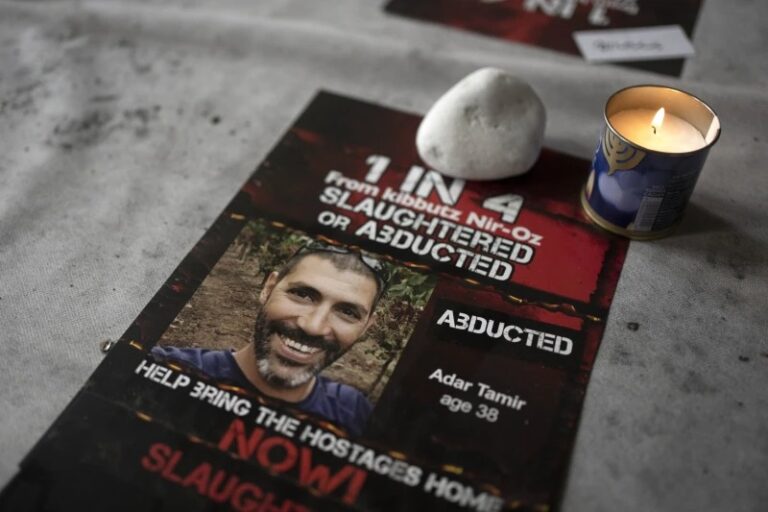 [COMMUNICATED CONTENT]
[COMMUNICATED CONTENT]
Rav Yaakov Kamenetsky zt”l once suffered through a boring presentation. Seeing the distress on the faces of others in the audience, he tried to defuse the tension. “Pretty good,” he said after the speaker sat down. “But it wasn’t quite as good as not speaking at all.”
Rabbi Yitzchok Adlerstein, who began his public speaking career while still in high school, thinks that uninspired speaking has become so commonplace that Rav Yaakov wouldn’t bother commenting today. He’s decided to do something about it. He has launched a service to help people come up with presentations that will charm an audience, rather than make them fidget in their seats.
“The single most ignored instruction of Chazal,” said Rabbi Adlerstein, “does not concern kashrus or tzniyus or lashon hora or gaavah. Rather, it describes public speaking. Picking up on a phrase about conversation between Hashem and Moshe, a medrash instructs that if a speech will be received as warmly as a kallah to her chosson, it is proper to deliver it. If not, says the medrash, the speaker should turn down the opportunity.
“I’m not sure why people have gotten used to so much speaking that flat-lines before it even begins. This is not the way it should be. We used to pride ourselves on wonderful orators. Baruch Hashem, we still have a few – but very few.”
Watch the crowd at a dinner, Rabbi Adlerstein observes, or while a bar-mitzvah boy presents his pshetl. While some try to hang on, too many others are nodding off, or busy with some distraction. Most of us accept this state of affairs as if this were a rule of nature. Rabbi Adlerstein disagrees. He points to an article authored some decades ago by a master communicator, Rabbi Emanuel Feldman, formerly the rav of Beth Jacob in Atlanta. Rabbi Feldman asked why people don’t come to shul carrying their tefillin in a brown paper bag. No one would do that. They understand that an important mitzvah like tefillin should be conveyed in an elegant manner. Torah thoughts, he observed, are certainly also important. Why are we content to convey them in inelegant words?
Rabbi Adlerstein also doesn’t understand why people will pay attention to every detail about their simcha, other than the quality of the speeches. In particular, many parents want their sons to lein part or all of their bar-mitzvah parshah, in order to equip them with a skill they might be able to use later in life. “It is more likely that the bar-mitzvah will have use for good public speaking skills than he will lein regularly. Why do we ignore a teachable moment, and allow so many boys to present very good Torah thoughts in a very poor manner. Think of how many begin with ‘Rashi says in today’s parshah’ rather than opening with a powerful first sentence. Boys could and should use the opportunity to learn the difference between good and mediocre presentation.”
Too many people, speculates Rabbi Adlerstein, accept the mediocrity because they have no alternative. Presidents get speech-writers, but not the rest of us. Rabbi Adlerstein launched Elegant Jewish Writing (elegantjewishwriting.com) to offer everyone the same advantage that presidents have. While he can’t deliver Teleprompters to shuls, he and his associates can put together presentations for any occasion. They will prepare the words for the honoree at a dinner, or the chosson at his sheva berachos, or the bar-mitzvah bochur who wants to deliver something more memorable than his friends. Elegant Jewish Writing can prepare the presentation from top to bottom, including the Torah, the machshavah, the anecdotes, and, where appropriate, the humor. Or, it can take a pshetl with great content but no pizazz and rewrite it till it sparkles with freshness and creativity.
Elegant Jewish Writing will only use top-of-the-line, professional writers with decades of experience. They are well known in the Orthodox world as some of the best talent available. Rabbi Adlerstein himself writes for a Jewish advocacy group, and has published in the Wall Street Journal, the Los Angeles Times, Huffington Post, and a host of general and Jewish media outlets. He is the founding editor of the popular blog Cross-Currents, and sits on the boards of publications like Klal Perspectives and Jewish Action.
After a free phone consultation, clients will be told of the estimated cost, with a guarantee that the product will not exceed that sum.
“People don’t do their own cooking and baking for their large simchas,” Rabbi Adlerstein observes. “They outsource them. Why shouldn’t they do the same for their presentations? They will appreciate being relieved of the pressure. And their guests will take away more than a bencher.”






9 Responses
This article “quotes” what Rav Yaakov Kamenetzky said to a speaker after he gave a boring presentation. I would suggest that this is one of the many quotes attributed to Gedolei Yisrael that is simply not true. Rav Yaakov would never make any comment, certainly not in public, that would embarrass another person. If Rav Yaakov would have made such a comment, it would have been in private, and in a constructive manner, intended to benefit the recipient. I am troubled that Yeshiva World prints such a story, that is obviously not true, about a Godol.
Great idea Reb Yitzchak.
LESS ZZZZZZZZZ at Simchos!!!
The delivery of the speech is way more important if the kid is speaking without energy and is just reading off a paper then no ones paying attention.
Excellent problem identification. I think that public speaking should be taught in Yeshivot and Kollelim. Toastmasters International is an outstanding program and frum groups can be found, albeit more are needed and could readily be formed in Jewish schools and communities.
He said
דער ספיטש איז זייער גוט – אבער צו ניט ריידן קומט דאס נישט!
I agree with Dovi #1 that the story about Rav Yaakov sounds difficult to believe that he would publicly embarrass someone.
There are two issues here: content and delivery. Having a well written speech helps with content, but not necessarily with delivery.
“or the bar-mitzvah bochur who wants to deliver something more memorable than his friends”
Did the company write this article as well?
I would hope my son would want to deliver something memorable, not something more memorable than his friends…
Upgrading the literacy programs in boys’ yeshivos may also alleviate this problem.
My dear friend, clear your mind of cant.
Words are but the signs of ideas.
Samuel Johnson